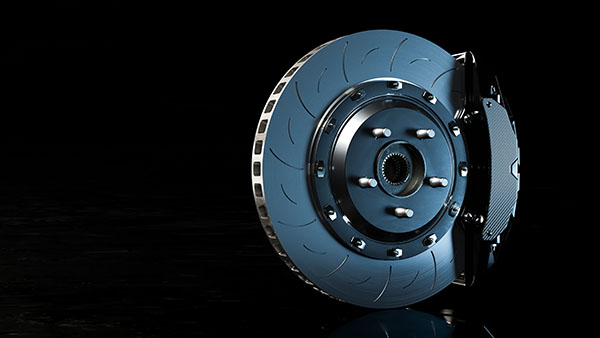
The brake pad is a crucial component that allows a speeding vehicle to come to a halt with a gentle press of the pedal. However, it's important to note that not all brake pads are created equal.
The Heart of Braking Performance
At the core of every braking system lies the brake pad, a component that determines how effectively your vehicle can stop. But before we get into the nitty-gritty, let's clear the air: yes, there are indeed several types of brake pads, and each has its unique characteristics, advantages, and suitable applications.
Knowing the differences can significantly enhance your driving experience and even extend the life of your vehicle's braking system.
Main Brake Pad Types
Organic Brake Pads
Organic brake pads, also known as non-asbestos organic (NAO) pads, are made from a mixture of fibers and materials like rubber, carbon compounds, and filler materials, all bound together with a resin. They're the whisperers of the brake pad family—quiet and gentle on the brake discs. Ideal for everyday driving, organic pads offer a smooth braking experience but tend to wear out faster and generate more dust than their counterparts.
Metallic Brake Pads
If you're looking for brake pads that offer a bit more power and don't mind a little bit of noise, metallic brake pads might be just what you need. These pads are made from a blend of metals like steel, copper, and iron, making them extra tough and long-lasting. They're especially popular among car enthusiasts and drivers of heavier vehicles for their resilience and ability to perform well in a variety of temperatures and driving conditions.
Ceramic Brake Pads
Silent but deadly efficient, ceramic brake pads are the premium choice for drivers who demand the best. Made from ceramic fibers, filler materials, and sometimes small amounts of metal, these pads boast a remarkable balance of longevity, noise reduction, and minimal dust production. They perform consistently across a vast temperature range, making them ideal for high-performance vehicles and those seeking a blend of comfort and capability.
Hybrid Brake Pads
Hybrid brake pads are the chameleons of the brake pad universe, blending the qualities of organic, metallic, and sometimes ceramic materials to create a versatile and well-rounded option. They aim to offer the durability of metallic pads, the quiet operation of ceramic pads, and the affordability of organic pads, catering to drivers who seek a middle ground.
Understanding Brake Pad Compatibility
Choosing the right brake pad isn't just about preference; it's about compatibility with your vehicle and driving habits. Heavier vehicles, performance cars, and those frequently driven in demanding conditions may benefit more from metallic or ceramic pads, while everyday commuters might find organic or hybrid pads perfectly adequate.
Also, consider the number of brake pads your car has. Some brake systems come with more than one brake caliper on each wheel.
The Impact of Brake Pads on Driving Safety
Never underestimate the impact of your choice of brake pads on safety. The right type can enhance braking efficiency, reduce stopping distances, and contribute to a safer driving experience. Always consider your vehicle's specifications and consult with a professional to ensure you're making an informed decision.
Here are three common inquiries and their answers:
Can I switch to a different type of brake pad than what my vehicle came with?
Yes, you can switch to a different type of brake pad, but it's important to choose pads that are compatible with your vehicle's braking system and suited to your driving habits.
How often should I check my brake pads for wear?
It's recommended to check your brake pads every 10,000 to 20,000 miles, but this can vary based on your driving habits and the type of brake pads you use.
Do ceramic brake pads really last longer than other types?
Yes, ceramic brake pads typically last longer than organic and some metallic pads due to their composition and resistance to wear. However, their lifespan can also depend on driving conditions and habits.
Need a brake pad change? Hyland Auto Repair is here to help out - even with the more serious repairs and maintenance. Just give us a call, and we will be happy to take you in!